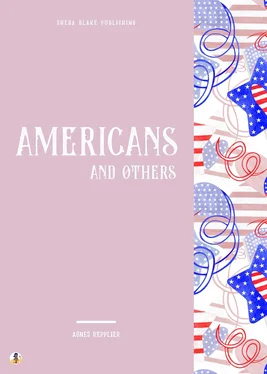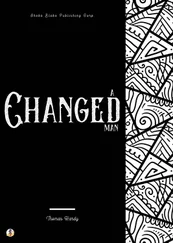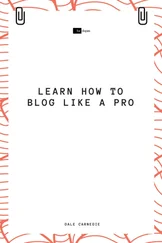Sheba Blake - Americans and Others
Здесь есть возможность читать онлайн «Sheba Blake - Americans and Others» — ознакомительный отрывок электронной книги совершенно бесплатно, а после прочтения отрывка купить полную версию. В некоторых случаях можно слушать аудио, скачать через торрент в формате fb2 и присутствует краткое содержание. Жанр: unrecognised, на английском языке. Описание произведения, (предисловие) а так же отзывы посетителей доступны на портале библиотеки ЛибКат.
- Название:Americans and Others
- Автор:
- Жанр:
- Год:неизвестен
- ISBN:нет данных
- Рейтинг книги:5 / 5. Голосов: 1
-
Избранное:Добавить в избранное
- Отзывы:
-
Ваша оценка:
- 100
- 1
- 2
- 3
- 4
- 5
Americans and Others: краткое содержание, описание и аннотация
Предлагаем к чтению аннотацию, описание, краткое содержание или предисловие (зависит от того, что написал сам автор книги «Americans and Others»). Если вы не нашли необходимую информацию о книге — напишите в комментариях, мы постараемся отыскать её.
Americans and Others — читать онлайн ознакомительный отрывок
Ниже представлен текст книги, разбитый по страницам. Система сохранения места последней прочитанной страницы, позволяет с удобством читать онлайн бесплатно книгу «Americans and Others», без необходимости каждый раз заново искать на чём Вы остановились. Поставьте закладку, и сможете в любой момент перейти на страницу, на которой закончили чтение.
Интервал:
Закладка:
When we leave the open field of exaggeration, that broad area which is our chosen territory, and seek for subtler qualities in American humour, we find here and there a witticism which, while admittedly our own, has in it an Old-World quality. The epigrammatic remark of a Boston woman that men get and forget, and women give and forgive, shows the fine, sharp finish of Sydney Smith or Sheridan. A Philadelphia woman’s observation, that she knew there could be no marriages in Heaven, because—“Well, women were there no doubt in plenty, and some men; but not a man whom any woman would have,” is strikingly French. The word of a New York broker, when Mr. Roosevelt sailed for Africa, “Wall Street expects every lion to do its duty!” equals in brevity and malice the keen-edged satire of Italy. No sharper thrust was ever made at prince or potentate.
The truth is that our love of a jest knows no limit and respects no law. The incongruities of an unequal civilization (we live in the land of contrasts) have accustomed us to absurdities, and reconciled us to ridicule. We rather like being satirized by our own countrymen. We are very kind and a little cruel to our humourists. We crown them with praise, we hold them to our hearts, we pay them any price they ask for their wares; but we insist upon their being funny all the time. Once a humourist, always a humourist, is our way of thinking; and we resent even a saving lapse into seriousness on the part of those who have had the good or the ill fortune to make us laugh.
England is equally obdurate in this regard. Her love of laughter has been consecrated by Oxford,—Oxford, the dignified refuge of English scholarship, which passed by a score of American scholars to bestow her honours on our great American joker. And because of this love of laughter, so desperate in a serious nation, English jesters have enjoyed the uneasy privileges of a court fool. Look at poor Hood. What he really loved was to wallow in the pathetic,—to write such harrowing verses as the “Bridge of Sighs,” and the “Song of the Shirt” (which achieved the rare distinction of being printed—like the “Beggar’s Petition”—on cotton handkerchiefs), and the “Lady’s Dream.” Every time he broke from his traces, he plunged into these morasses of melancholy; but he was always pulled out again, and reharnessed to his jokes. He would have liked to be funny occasionally and spontaneously, and it was the will of his master, the public, that he should be funny all the time, or starve. Lord Chesterfield wisely said that a man should live within his wit as well as within his income; but if Hood had lived within his wit—which might then have possessed a vital and lasting quality—he would have had no income. His role in life was like that of a dancing bear, which is held to commit a solecism every time it settles wearily down on the four legs nature gave it.
The same tyrannous demand hounded Mr. Eugene Field along his joke-strewn path. Chicago, struggling with vast and difficult problems, felt the need of laughter, and required of Mr. Field that he should make her laugh. He accepted the responsibility, and, as a reward, his memory is hallowed in the city he loved and derided. New York echoes this sentiment (New York echoes more than she proclaims; she confirms rather than initiates); and when Mr. Francis Wilson wrote some years ago a charming and enthusiastic paper for the “Century Magazine,” he claimed that Mr. Field was so great a humourist as to be—what all great humourists are,—a moralist as well. But he had little to quote which could be received as evidence in a court of criticism; and many of the paragraphs which he deemed it worth while to reprint were melancholy instances of that jaded wit, that exhausted vitality, which in no wise represented Mr. Field’s mirth-loving spirit, but only the things which were ground out of him when he was not in a mirthful mood.
The truth is that humour as a lucrative profession is a purely modern device, and one which is much to be deplored. The older humourists knew the value of light and shade. Their fun was precious in proportion to its parsimony. The essence of humour is that it should be unexpected, that it should embody an element of surprise, that it should startle us out of that reasonable gravity which, after all, must be our habitual frame of mind. But the professional humourist cannot afford to be unexpected. The exigencies of his vocation compel him to be relentlessly droll from his first page to his last, and this accumulated drollery weighs like lead. Compared to it, sermons are as thistle-down, and political economy is gay.
It is hard to estimate the value of humour as a national trait. Life has its appropriate levities, its comedy side. We cannot “see it clearly and see it whole,” without recognizing a great many absurdities which ought to be laughed at, a great deal of nonsense which is a fair target for ridicule. The heaviest charge brought against American humour is that it never keeps its target well in view. We laugh, but we are not purged by laughter of our follies; we jest, but our jests are apt to have a kitten’s sportive irresponsibility. The lawyer offers a witticism in place of an argument, the diner-out tells an amusing story in lieu of conversation. Even the clergyman does not disdain a joke, heedless of Dr. Johnson’s warning which should save him from that pitfall. Smartness furnishes sufficient excuse for the impertinence of children, and with purposeless satire the daily papers deride the highest dignitaries of the land.
Yet while always to be reckoned with in life and letters, American humour is not a powerful and consistent factor either for destruction or for reform. It lacks, for the most part, a logical basis, and the dignity of a supreme aim. Moliere’s humour amounted to a philosophy of life. He was wont to say that it was a difficult task to make gentlefolk laugh; but he succeeded in making them laugh at that which was laughable in themselves. He aimed his shafts at the fallacies and the duplicities which his countrymen ardently cherished, and he scorned the cheaper wit which contents itself with mocking at idols already discredited. As a result, he purged society, not of the follies that consumed it, but of the illusion that these follies were noble, graceful, and wise. “We do not plough or sow for fools,” says a Russian proverb, “they grow of themselves”; but humour has accomplished a mighty work if it helps us to see that a fool is a fool, and not a prophet in the market-place. And if the man in the market-place chances to be a prophet, his message is safe from assault. No laughter can silence him, no ridicule weaken his words.
Carlyle’s grim humour was also drilled into efficacy. He used it in orderly fashion; he gave it force by a stern principle of repression. He had (what wise man has not?) an honest respect for dulness, knowing that a strong and free people argues best—as Mr. Bagehot puts it—“in platoons.” He had some measure of mercy for folly. But against the whole complicated business of pretence, against the pious, and respectable, and patriotic hypocrisies of a successful civilization, he hurled his taunts with such true aim that it is not too much to say there has been less real comfort and safety in lying ever since.
These are victories worth recording, and there is a big battlefield for American humour when it finds itself ready for the fray, when it leaves off firing squibs, and settles down to a compelling cannonade, when it aims less at the superficial incongruities of life, and more at the deep-rooted delusions which rob us of fair fame. It has done its best work in the field of political satire, where the “Biglow Papers” hit hard in their day, where Nast’s cartoons helped to overthrow the Tweed dynasty, and where the indolent and luminous genius of Mr. Dooley has widened our mental horizon. Mr. Dooley is a philosopher, but his is the philosophy of the looker-on, of that genuine unconcern which finds Saint George and the dragon to be both a trifle ridiculous. He is always undisturbed, always illuminating, and not infrequently amusing; but he anticipates the smiling indifference with which those who come after us will look back upon our enthusiasms and absurdities. Humour, as he sees it, is that thrice blessed quality which enables us to laugh, when otherwise we should be in danger of weeping. “We are ridiculous animals,” observes Horace Walpole unsympathetically, “and if angels have any fun in their hearts, how we must divert them.”
Читать дальшеИнтервал:
Закладка:
Похожие книги на «Americans and Others»
Представляем Вашему вниманию похожие книги на «Americans and Others» списком для выбора. Мы отобрали схожую по названию и смыслу литературу в надежде предоставить читателям больше вариантов отыскать новые, интересные, ещё непрочитанные произведения.
Обсуждение, отзывы о книге «Americans and Others» и просто собственные мнения читателей. Оставьте ваши комментарии, напишите, что Вы думаете о произведении, его смысле или главных героях. Укажите что конкретно понравилось, а что нет, и почему Вы так считаете.












